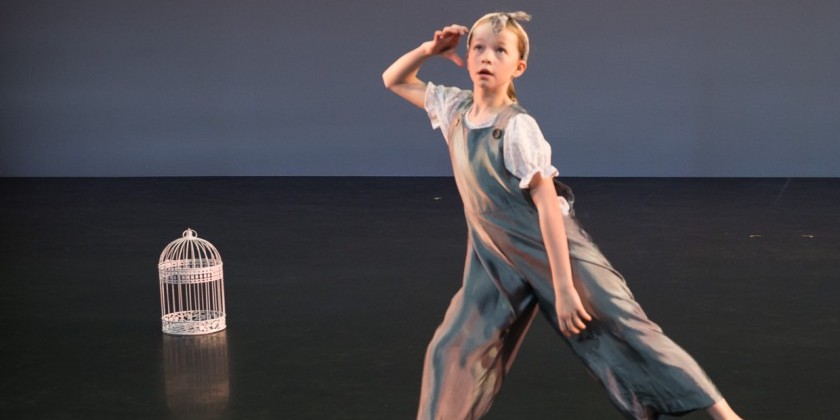Miguel Gutierrez's "Super Nothing" at New York Live Arts

Choreographer: Miguel Gutierrez
Performer/Collaborators: Jay Carlon, Evelyn Lilian Sanchez Narvaez, Justin Faircloth, Wendell Gray II
Lighting Designer: Carolina Ortiz
Associate Lighting Designer: Christina Tang
Composer: Rosana Cabán, with contributions from Miguel Gutierrez
Costume Designer: Jeremy Wood
Dramaturgical Assistance: Stephanie Acosta
Production Stage Manager: Gianna Durante
Management: Michelle Fletcher
Additional movement contributions: Ajani Brannum, Marty Kudelka, Kathryn Hunter
“Super Nothing” is a new quartet for performers from New York (Justin Faircloth, Wendell Gray II) and Los Angeles (Jay Carlon, Evelyn Sanchez Narvaez)
What does dancing have to do with survival? For choreographer Miguel Gutierrez, the answer is: everything.
Faced with immense and overwhelming personal and collective grief, the artist unleashes a sensory and affective epic in “Super Nothing,” the culmination of his two-year commissioned residency at New York Live Arts. Four extraordinary performer/collaborators incarnate the visceral and formal virtuosities of Gutierrez’s movement to activate a stageworld teeming with sound and light that thrash and hum with unruly, insistent bodies of their own.

Miguel Gutierrez's "Super Nothing." Photo: Maria Baranova
The work’s intimacies and extremes ring with dramaturgical coherence and leave in their wake a staggering sense of resplendent exhaustion and relentless possibility: a survival that goes beyond bare life to bore into the pulsating core of our mortality. For this “Super Nothing” requires a particular kind of attention, at once focused and diffuse, to process the telescoping rhythms and dimensions of its movement, sound, and light languages. Worlds away from decoration, accompaniment, or afterthought, this holistic spatial-sensory environment supports and enacts meanings of collective survival within and beyond its staged microcosm.

An original score by Rosana Cabán brings impulses of texture, rhythm, and mood in meaty thumps, tonal drones, and fleeting, dreamlike quotations that flash familiar and strange. Booming drums, plaintive cello, and sampled vocals bloom like elegies amid a mass of electronic harmonies and dissonances; silences stretch with equal intent. Carolina Ortiz’s narrative of light enters attention as atmosphere as often as it asserts its own life as form, character, and emotional trampoline. Grayscale gives way to saturated spills of indigo and magenta, waves of clinical white, blasts of green, interludes of pale gloom, and twinned panning spotlights and washes of cool yellow that breach the fourth wall; a square of white fabric suspended in the grid captures and isolates color and shape. The work’s loosely episodic structure, delineated by breaks and continuities in any one or more of its dramatic elements, hurtles forward with volatility yet without violence, its anxieties calmed by the certainty of its shifting impermanence.

Movement defines and defies the dance, operating as form, affect, sound, and architecture as bodies orbit, intertwine, and careen through sweeping individual and shared trajectories. Flesh meets floor as breath meets air with audible assertions of vital gravity, effort, and tenderness; eyes, faces, and bodies invite perception with fearless vulnerability. Gutierrez composes scenes with his signature stamp of affective abstraction that seeks to augment and illuminate rather than deny or obscure; recognition is an essential component of the work’s capacity to complete the circuit between performance and audience. This recognition allows the artist to open questions of perception and logic through sly juxtapositions and masterful recastings of the mundane. Postures of classical repose meld with pinups and pornos; nostalgic party tableaus descend (or ascend?) into an orgy that morphs into a sculpture of flesh built on interdependence and shared power; cheesy music video moves are rendered in mathematically precise, kaleidoscopic unison. Individuals stumble and slingshot around the stage as groups tangle through explorative interpenetrations, musculatures alternately tensed and yielding.

The heroism of the performers cannot be overstated. Justin Faircloth leverages their weight through wide lunges and vertiginous falls with absolute conviction: feet firm, body whole. Wendell Gray II’s grounding presence holds myriad textures at once, turning on multiple axes with defiant ease, shapes etched graphically in space. Jay Carlon oscillates seamlessly between frank elegance and explosive power through cycles of shattering and soothing that seem to invigorate rather than drain the live wire of his form. Evelyn Lilian Sanchez Narvaez pierces space with hunger and curiosity, whether striking elastic poses, channeling manic spasms, or tossing an arm up to clink a set of thin, glinting silver bangles. Together they trace and dissolve boundaries, turning their insides out and funneling the outside in to conjure and inhabit a shared world.

Individually and collectively, they—and we, as there is strength enough for all us—dance ecstatically toward survival. Despair casts off its weight, just as hope evaporates into ether, leaving only what’s real. They—we—are at once bereft and replete, pulled into an inexorable eros, a life force fueled by and propelled into the unknown. In tandem they approach us with full-bodied convulsions and heaving chests; faces unwaveringly forward, they recede slowly, laying bare their terror, their confusion, their devastation, their deep and impossible knowing wrung out in sweat. One by one they are stilled, hovering against the black wall: hearts open and arms outstretched, their palms flicker forward as they tread into the dark margins—blips on the continuum, miniscule, precious, and infinite.














